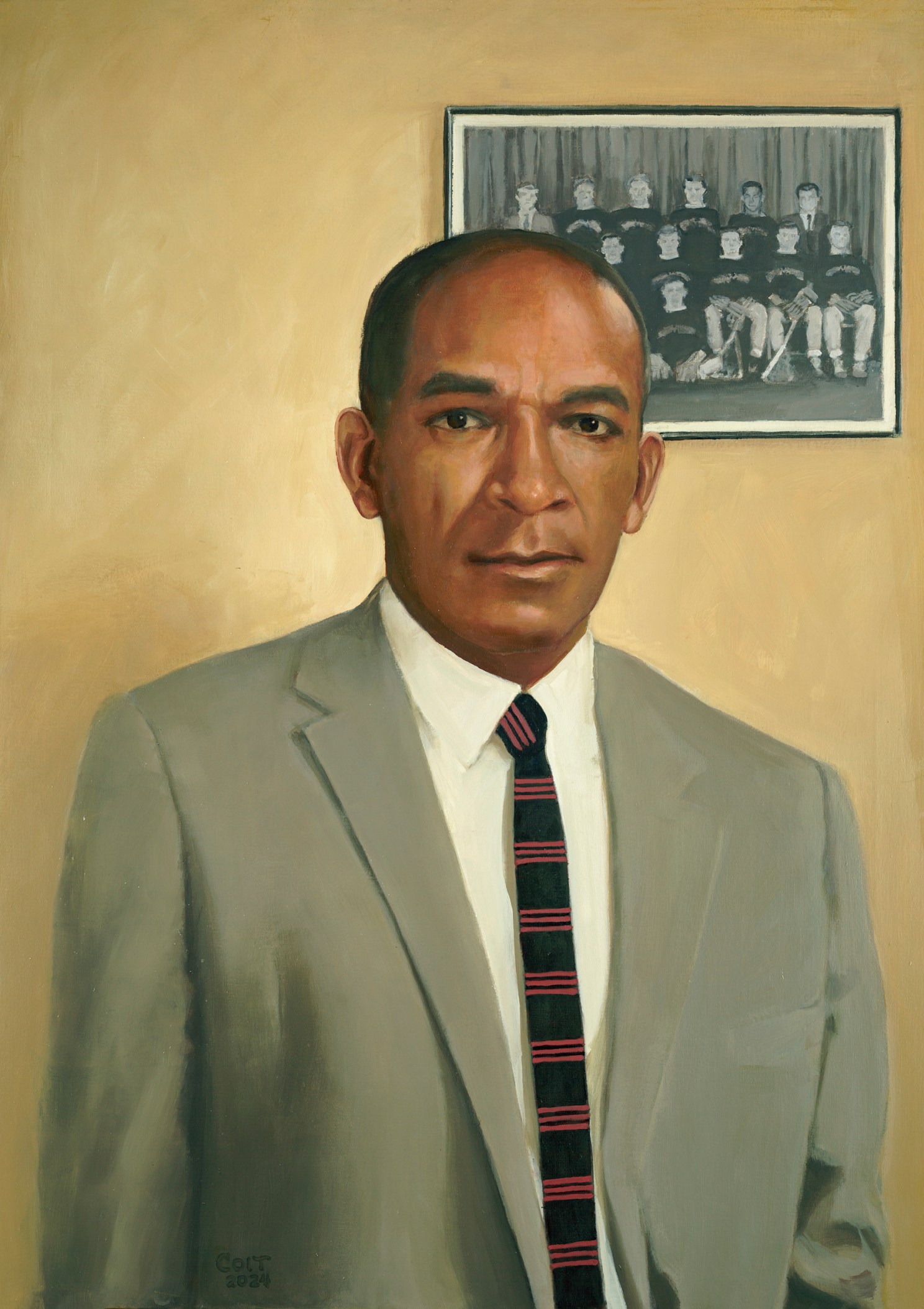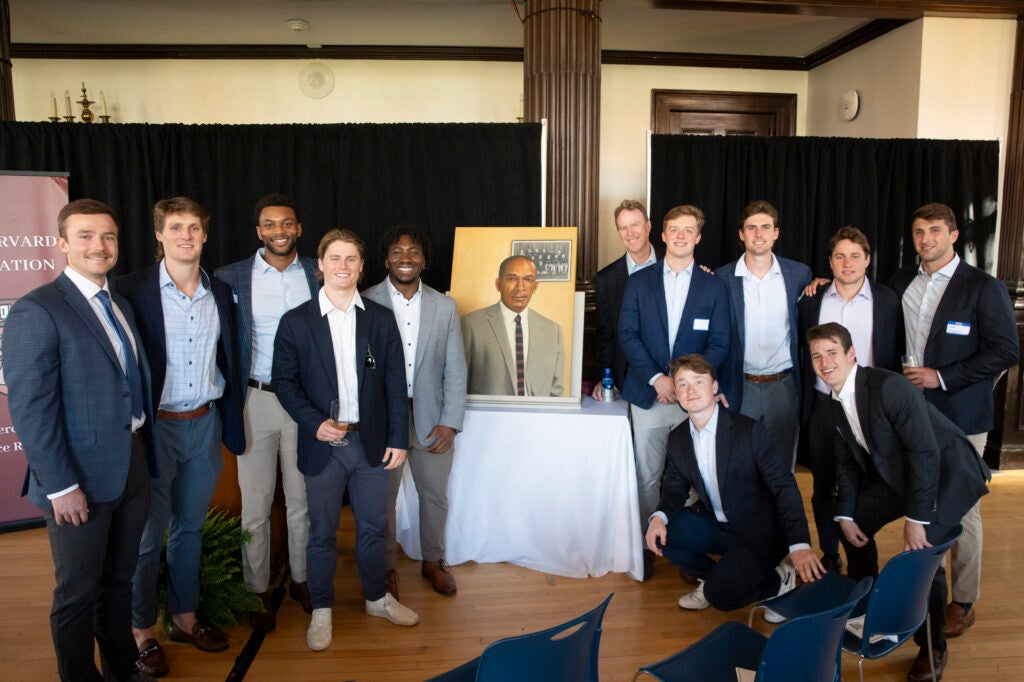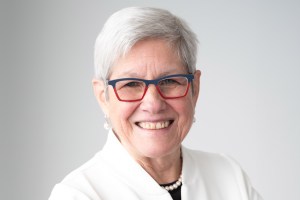
Image courtesy of the artist, Stephen Coit, ’71. All rights reserved.
Tested most by game he didn’t play
Portrait honors Harvard’s first Black lacrosse player, whose 1941 benching in the South sparked outcry
In 1941, the Harvard men’s lacrosse team drove south for a game against the U.S. Naval Academy. But when the Crimson arrived at Annapolis, Navy team officials notified the Harvard coaching staff they would not play the contest if Lucien V. Alexis Jr. ’42 — the team’s first Black player — took the field.
Head coach Dick Snibbe and Alexis’ teammates refused to bench him and decided to forfeit the game in protest. But the following day, Harvard administration ordered Alexis to travel back to Cambridge and the game was played as scheduled.
As newspapers reported on the incident, public outrage was directed at both Harvard and Navy. When Harvard’s lacrosse team traveled to West Point, New York, a week later to play a game against the U.S. Military Academy they were welcomed by a cheering group led by Black cadets. Alexis played that match.
Habiba Braimah, senior director of the Harvard Foundation
“We honor Lucien’s dedication to his team and institution, and recognize the hardship that Alexis unjustly endured while at this institution.”
This fall, Alexis’ legacy will be honored when his portrait — painted as part of the Harvard Foundation for Intercultural and Race Relations’ Portraiture Project — is installed in the Gilman Room at Agassiz Theatre.
“We honor Lucien’s dedication to his team and institution, and recognize the hardship that Alexis unjustly endured while at this institution,” said Habiba Braimah, senior director of the Harvard Foundation.
Launched in 2002, the portrait project aims to better reflect Harvard’s diversity on walls around campus.
Midfielder Fred Asare-Konadu ’24 said Alexis’ story was immediately relatable. “As a lacrosse player, there have been so many situations where I was the only African American person on a team or in a room. I was able to understand how he may have felt in many of these situations.”
“He had to make a lot of hard decisions for the betterment of his team,” defender Jaden Jernigan ’25 said. “His fortitude and ability to push through an unfortunate situation is something I try to pull from in my everyday decision-making process. He has been a huge influence on me.”

Members of the Harvard College Men’s Lacrosse Team and their coach.
Niles Singer/Harvard Staff Photographer
Last spring, Frisbie Family Head Coach for Harvard Men’s Lacrosse Gerry Byrne reached out to Asare-Konadu and Jernigan, asking them to help get the Alexis portrait across the finish line. From there, the pair have worked with the Harvard Foundation to help raise awareness of Alexis’ story.
Stephen E. Coit
“I saw a sense of complexity in his face. This portrait is about dealing with change and being in the middle of it.”
“In any group, your identity is the culmination of stories that you continue to share,” Asare-Konadu said. “I think Coach Byrne does a phenomenal job of talking about our history. Knowing that Lucien’s story will be brought back into these conversations is important for the culture we are continuing to instill.”
“The importance of representation in portraiture cannot be overstated, as it serves as a visual narrative of our shared history, values, and contributions,” Braimah said. “Through these portraits, we honor the legacies of those that have made significant contributions to Harvard and highlight the importance of representation in creating a more equitable and diverse environment.”
Artist Stephen E. Coit ’71 spoke at the unveiling of the portrait last month. “My goal is to not to give my impressions of people, my goal is to give their impressions, so they communicate to you what they want to say. I saw a sense of complexity in his face. This portrait is about dealing with change and being in the middle of it.”
Asare-Konadu and Jernigan say they hope more people across the athletics program and the wider campus community can learn from Alexis’ sacrifices.
“I think it will help foster growth,” Jernigan said. “Not only between teammates, but across lacrosse and different sports. I think it’s an amazing thing to share, and I’m glad we are a part of it.”
Get the best of the Gazette delivered to your inbox
By subscribing to this newsletter you’re agreeing to our privacy policy




